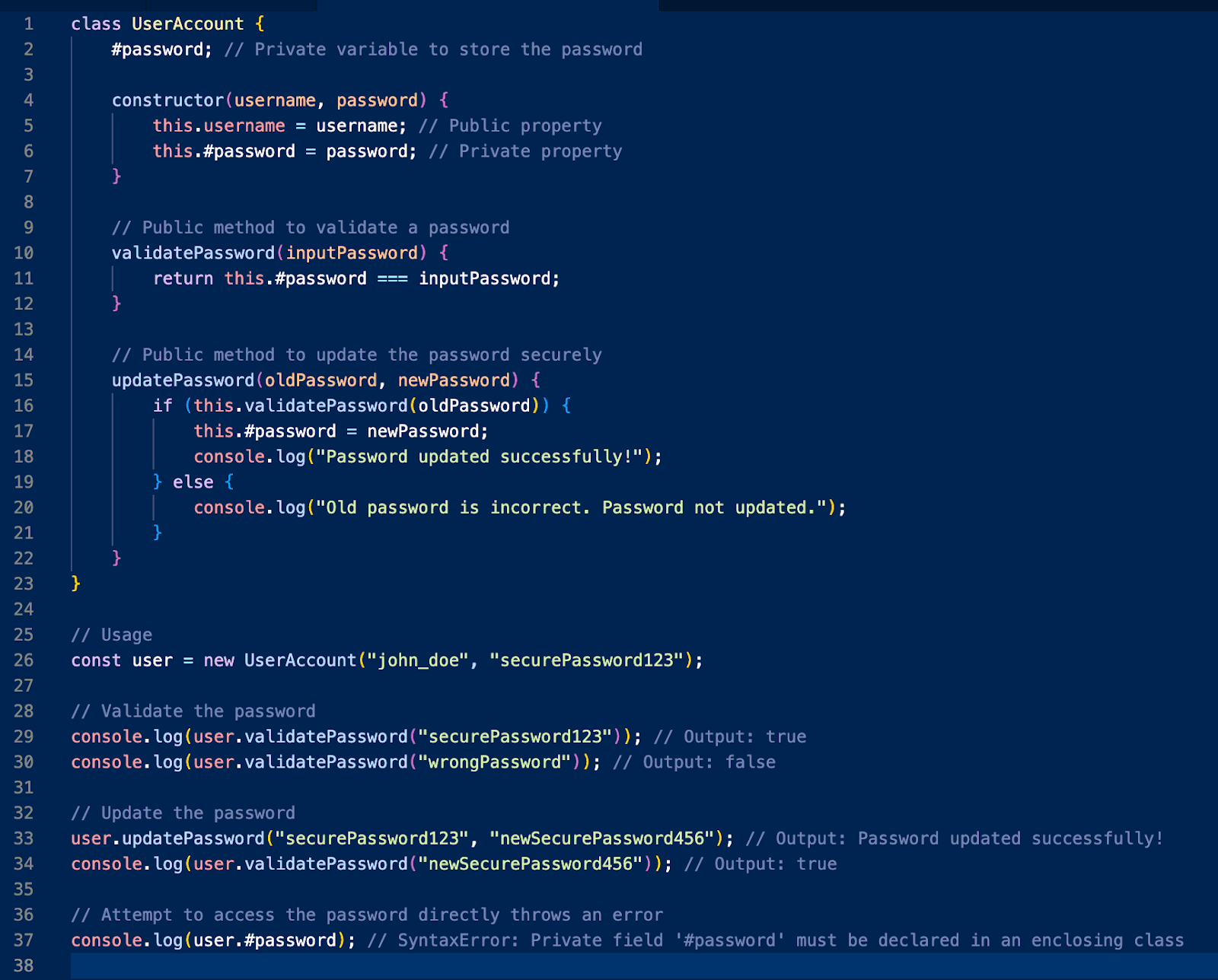How JavaScript Improves Security with Private Variables (#)
JavaScript is evolving, and among its latest features are private variables marked with a hash symbol (#). This functionality enhances code security and helps developers write cleaner and more maintainable applications.
What Are Private Variables and Why Are They Important?
Private variables are class properties that can only be accessed within the class itself. They are used to protect data and prevent external access. In most programming languages, such as Java, Python, and TypeScript, the private keyword is used for this purpose. JavaScript lacked native support for private properties for a long time, so developers used various workarounds.
How Do Private Variables Work in JavaScript?
Private variables in JavaScript are declared within a class using the # symbol. In this example, the variable is private and can only be accessed through methods defined in the certain class.
Example:

Photo by Medius
Private variable security: The
#passwordvariable is private and cannot be accessed or modified directly from outside the class. This ensures the password is not accidentally exposed or tampered with.Controled Access: The class provides methods (validatePassword and updatePassword) to interact with the password securely.
Benefits of Using Private Variables
Enhanced Security: Private variables prevent unauthorized access and reduce the risk of accidental changes.
Easier Debugging: The # symbol clearly marks private properties, making the code easier to understand.
Cleaner Code: Eliminates the need for makeshift solutions like prefixes or closures.
What Should You Consider When Using This Feature?
While private variables bring significant benefits, there are a few considerations to keep in mind:
Impact on Existing Codebases: Introducing private variables in legacy code may require significant refactoring, as older codebases often rely on conventions like property naming (e.g., _variable) or closures to simulate private behavior.
Compatibility Issues with Older Environments: Private variables are a relatively new feature introduced in ECMAScript 2019 (ES10). As a result, they may not be supported in older browsers or runtime environments that do not use up-to-date JavaScript engines. For instance:
Older versions of Internet Explorer or legacy systems will not recognize the # symbol, leading to syntax errors.
This can pose challenges for applications targeting users who rely on older technologies.
Transpilation for Backward Compatibility: To ensure compatibility, developers can use tools like Babel to transpile modern JavaScript features into equivalent ES5 syntax. However, private variables cannot be fully polyfilled due to their unique semantics. Instead, alternatives like closures or WeakMaps can be used as workarounds in environments that lack native support.
Comparison with Other Languages
Private variables in JavaScript are similar to the private keyword in TypeScript, Java, and Python. However, JavaScript’s use of the # symbol stands out, making private properties visually distinct and easier to identify.
The Future of Private Variables in JavaScript
The introduction of private variables with the # symbol is a step forward toward greater security and developer-friendly coding practices. This feature is likely to become a standard in new projects and drive further advancements in the language.
Developers should explore this new feature and consider how it can improve their code. While private variables do not affect the user experience, they are a valuable tool for creating more reliable software.